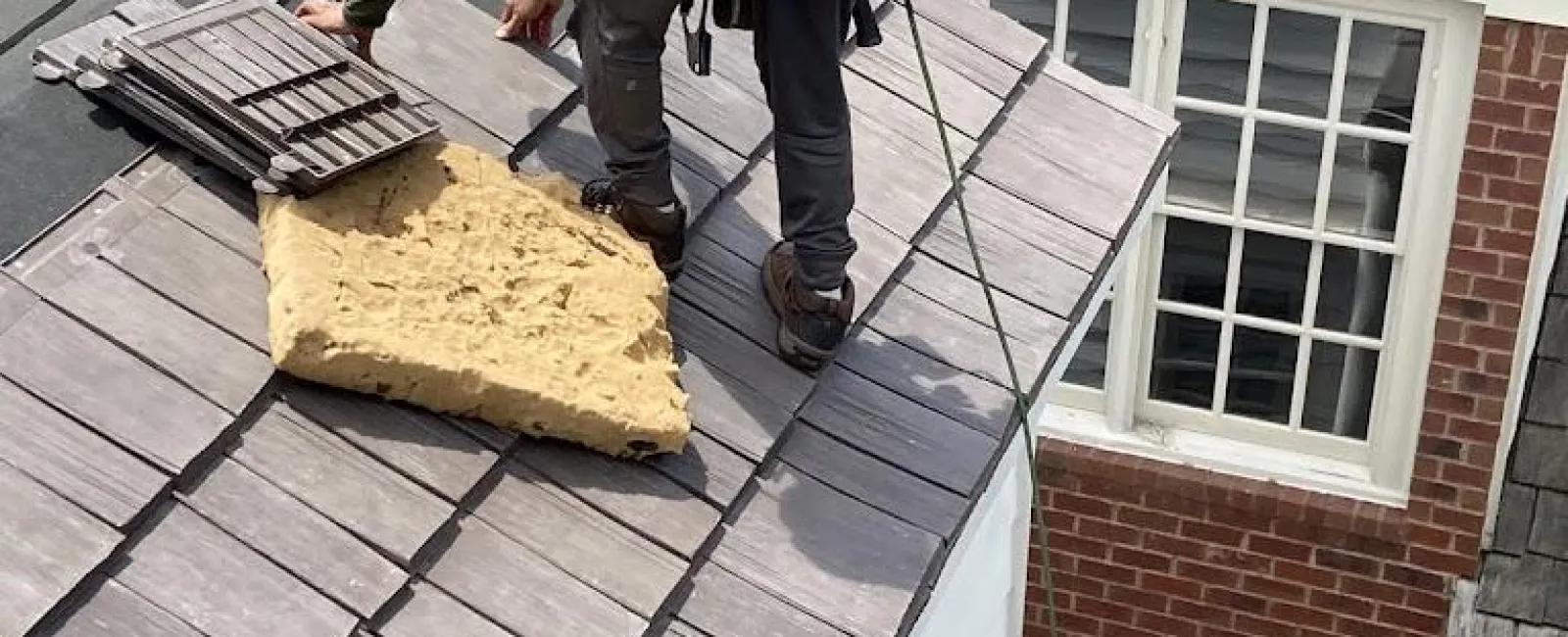When it's time for a roof repair or a complete roof replacement, one of the biggest decisions homeowners face is choosing the right type of shingles. Different shingles have pros and cons, and the best choice often depends on the climate, your budget, and how long you want your roof to last. FGA Roofing explores five common types of shingles and helps you weigh the options for roofing contractors.

1. Asphalt Shingles
Pros: Asphalt shingles are the most popular roofing option in the country for a reason. They’re affordable, easy to install, and widely available. Most roofing contractors are very familiar with them, so you'll have plenty of options when choosing a roofing company. They come in various styles and colors, making them versatile for most homes. Plus, they're known to last around 20 to 30 years, depending on the specific type you choose.
Cons: Asphalt shingles are budget-friendly but aren't the most durable option. They can be prone to cracking in extreme temperatures or strong winds. If you live in an area with harsh weather, you might need roof repair more frequently with asphalt shingles than other materials. Additionally, they aren't the most eco-friendly choice since they’re made from petroleum-based products and can end up in landfills when replaced.
2. Wood Shingles
Pros: Wood shingles are known for their natural beauty. They offer a classic, rustic look that many homeowners love, especially if you’re aiming for a more traditional or historic feel for your home. They are also energy-efficient, as wood is a natural insulator. When installed by experienced roofing contractors, wood shingles can last 30 to 50 years with proper maintenance.
Cons: The downside to wood shingles is the price. They are more expensive than asphalt shingles regarding material and installation costs. Moreover, wood shingles require regular maintenance to keep them in good condition, such as treatment for rot and pest prevention. If you live in a fire-prone area, wood shingles may not be a good choice because they are more susceptible to catching fire unless treated with special fire-resistant chemicals.
3. Metal Shingles
Pros: Metal shingles are incredibly durable and can last up to 50 years or more, making them an excellent long-term investment. They resist fire, rot, and insects and withstand harsh weather conditions like hail and heavy snowfall. Metal shingles are also eco-friendly, as many are made from recycled materials and are fully recyclable when replaced. They are lightweight and can often be installed over an existing roof, saving you some roof repair or replacement costs.
Cons: The biggest drawback to metal shingles is the cost. They are significantly more expensive upfront than asphalt or wood shingles in terms of material and installation. Only some roofing companies specialize in metal roofing, so finding roofing contractors with the right experience might take some time. Additionally, metal roofs can be noisy during heavy rain or hailstorms, which could concern some homeowners.
4. Slate Shingles
Pros: Slate shingles are often considered one of the most premium roofing materials. Known for their elegant, high-end appearance, slate shingles can significantly enhance your home's curb appeal. They are also incredibly durable, lasting over 100 years if properly maintained. Slate is naturally fire-resistant, waterproof, and resistant to mold and fungus, making it a low-maintenance option in the long run.
Cons: The downside to slate shingles is the cost, which is higher than most other roofing options. The material is heavy, so your roof structure needs to support it, which may require additional reinforcement. Repairing slate shingles can also be more difficult and expensive than other materials, so hiring a roofing company experienced with slate is essential when roof repair is needed.
5. Composite Shingles
Pros: Composite shingles are made from a blend of plastic, rubber, and asphalt, designed to mimic the appearance of more expensive materials like slate or wood. They are lightweight and durable and often come with extended warranties, some lasting up to 50 years. Composite shingles are resistant to cracking, fading, and algae growth, making them a low-maintenance option. Plus, many roofing contractors offer them as a cost-effective alternative to more traditional materials.
Cons: Composite shingles are more expensive than basic asphalt shingles, though still less costly than premium materials like metal or slate. While durable, composite shingles may not last as long as higher-end options like slate or metal. If not installed correctly, they may not provide the full benefits they’re capable of, so choosing a reputable roofing company is essential. Additionally, depending on the brand and material composition, some composite shingles may not be as environmentally friendly as other options.
FGA Roofing
When choosing the right type of shingles for your home, carefully weigh each material’s pros and cons. Cost, durability, appearance, and climate suitability affect the decision. Consulting with a knowledgeable roofing company such as FGA Roofing can help you choose the best options. Whether you opt for asphalt, wood, metal, slate, or composite shingles, working with experienced roofing contractors ensures a successful roof repair or replacement.
